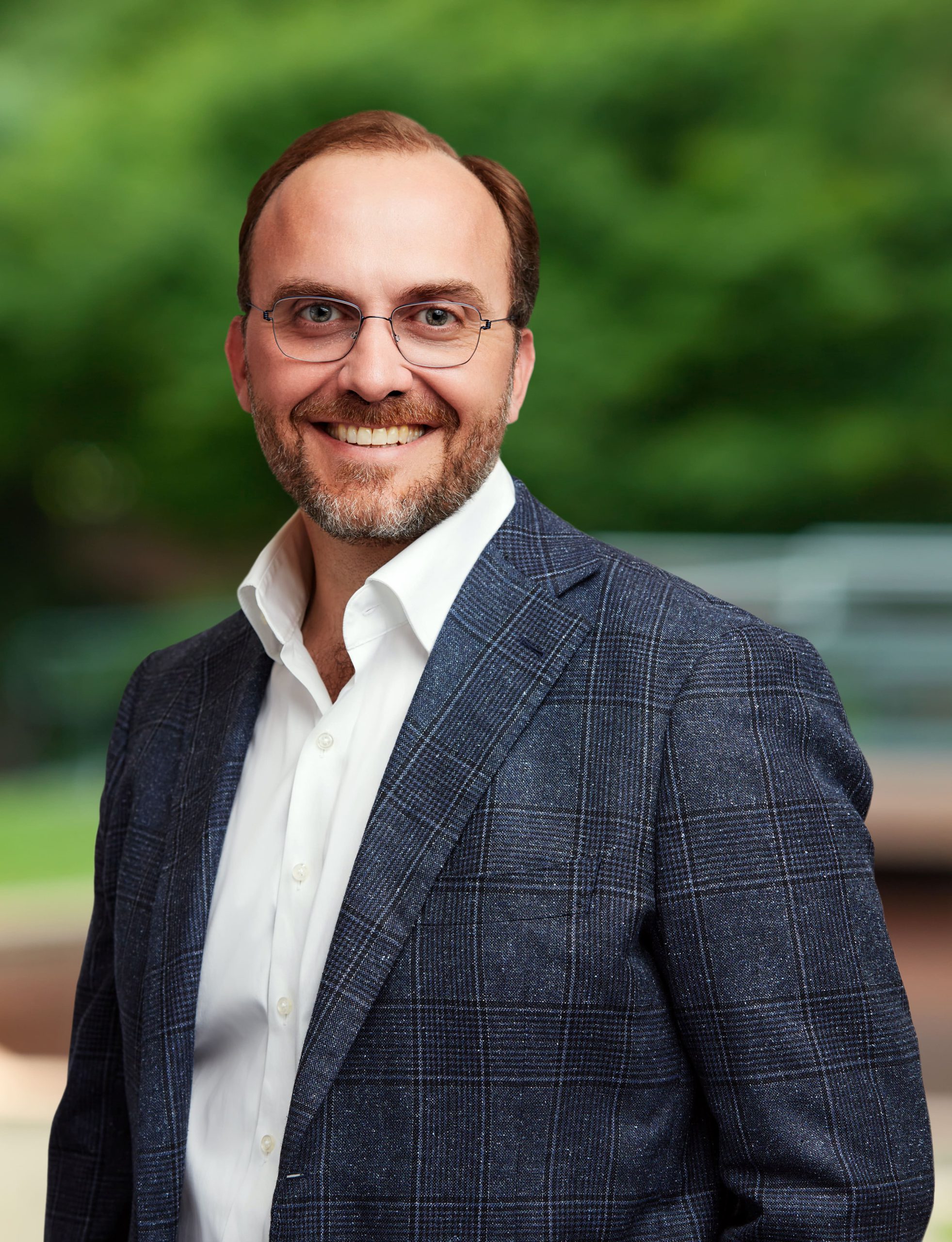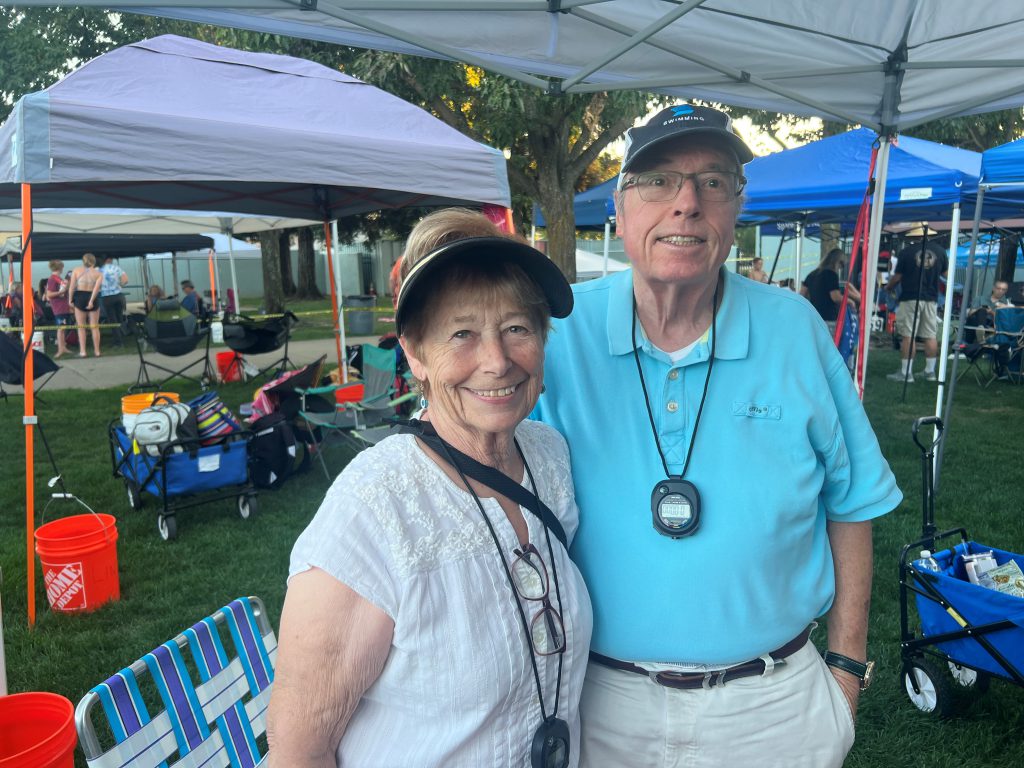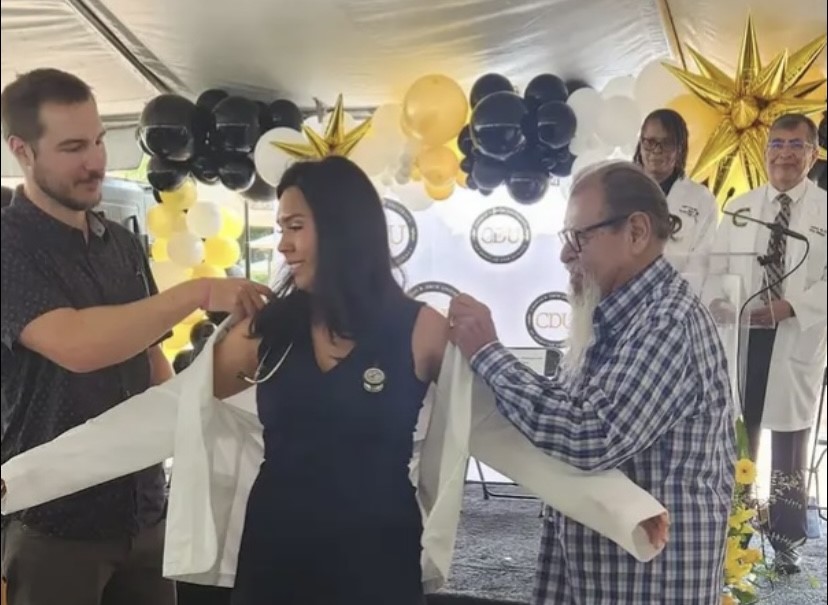Helen Boyer with her dog Rainey
Valentine’s Day is “heartfelt” for many but especially significant for few. For Half Moon Bay, Calif., resident Helen Boyer, this year the day of love marks her 60th birthday as she celebrates a healthy and active life. She’s enjoying freedom from the erratic and worsening atrial fibrillation (a-fib) she experienced two years ago.
In May 2021, Boyer noticed a “strange, floppy fish flutter in my chest, even while I was at rest” that increased in duration over six months. Sometimes the periods of irregular heartbeats lasted more than 15 hours.
Healthy and active, but concerned about the episodes of irregular heartbeats, Boyer sought advice from her cardiologist at Sutter Health, who referred Boyer to Dr. Christopher Woods, a cardiac electrophysiologist and atrial fibrillation specialist practicing at Sutter’s California Pacific Medical Center.

Christopher Woods, M.D., Ph.D.
When Dr. Woods told Boyer about a clinical trial testing a new and minimally invasive way to deliver pulsed field ablation (PFA) to individuals with intermittent, or paroxysmal, atrial fibrillation, she decided to join the study. “I thought to myself, ‘If there’s a novel approach that’s showing real promise in significantly helping people with a-fib return to full health, I’m game to participate in the research,’” says Boyer, who was keen to stop worrying about a-fib during long walks on the beach with her husband and their dog.
Called ADVENT, the study is the first randomized, controlled trial to directly compare the efficacy and safety of FARAPULSE™, manufactured by Boston Scientific and approved by the U.S. Food and Drug Administration (FDA) Jan. 31, versus standard-of-care ablation for the treatment of intermittent a-fib. Cardiac ablation is a minimally invasively procedure to help eradicate the diseased heart tissue causing the a-fib.
Results of ADVENT were published last year in The New England Journal of Medicine by ADVENT investigators including Dr. Woods. Sutter Health was one of only three sites in California offering patients enrollment to the study.
Research and Innovation Usher in New Way to Effectively Treat A-Fib
A-fib ablation is a technique whereby a small incision is made in the patient’s leg and a catheter is guided along a vein to the heart. This procedure involves making scars in small areas in the heart that are causing an abnormal rhythm, which prevents abnormal electrical signals or rhythms from moving through the heart.
The standard approach to ablation for a-fib has been thermal ablation, which uses heat or cold to damage the tissue causing the irregular “signals.” Thermal ablation may be associated with an increased risk of potential complications including damage to the esophagus, phrenic nerve injury and pulmonary vein stenosis. Some patients with paroxysmal a-fib who are treated with thermal ablation may require a repeat ablation within one year after the procedure.
Pulsed field is a new type of ablation that does not use temperature, but instead short, high-energy electrical pulses that selectively target only the aberrant cardiac cells, coaxing them to die. This catheter procedure is more precise and durable than thermal ablation, and does not damage the esophagus, pulmonary veins or phrenic nerve (which controls the diaphragm and is essential for breathing).
“A-fib is quite debilitating to patients. It can dramatically impact their quality of life and increases their risk of dementia, heart failure, stroke and death. Reversing this course reduces all of these risks. Pulsed field ablation overcomes the limitations of traditional ablation techniques and is a revolutionary, safer approach offering immediate and longer-term control of a-fib,” says Dr. Woods.
Today’s Research for Tomorrow’s Best Medicines
“Through bench science and clinical research at Sutter Health, we’re proud to offer patients with a-fib access to clinical trials like ADVENT. And we are deeply grateful to individuals like Helen who bravely contribute to research that paves the way for U.S. FDA approval of game-changing technologies and treatments,” says Dr. Woods.
He notes Sutter’s participation in ADVENT represents the first of ongoing PFA research across the not-for-profit, integrated health system. “Because PFA is new, ADVENT represents the leading edge of novel opportunities to further refine a technique that’s helping transform patients’ lives. Here at Sutter, we are committed to helping lead this research to improve care.”

Helen Boyer
Sutter Health is one of few centers in the U.S. offering patients access to several ongoing and upcoming clinical trials testing second-generation PFA tools. These studies include PULSAR-AF, Omnypulse and VOLT.
“Steady, My Beating Heart”
Boyer underwent a cardiac ablation with the FARAPULSE™ PFA System in March 2022. After a one-hour procedure and one overnight stay at CPMC, she went home “feeling free and excited” with no complications from the procedure.
As part of the ADVENT study, Boyer’s doctors checked her heart every six months and monitored her for any complications from the ablation procedure.
Boyer says, “I feel so lucky. It’s miraculous really, one day you’re constantly worried if you’ll to go into a-fib on a hike, and a month later, after a doctor has ablated your heart through a catheter in your leg, you’re taking the same hike with newfound freedom and lightness. Then, two years later and a-fib-free, your hikes are longer, worry-free and your steps are even lighter. That is life changing.”
Do you or someone you love have atrial fibrillation? Ask your doctor if a clinical trial could be right for you. Find clinical trials for atrial fibrillation offered at Sutter Health.





